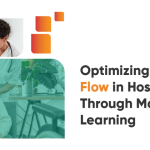Executive Summary
Management of prescription medication is an important workflow of healthcare companies
The existing prescription model in the United States often face many challenges – errors in prescribing medication, medication abuse, and over-prescription. All these challenges result in increased healthcare costs.
A streamlined and automated process for prescription refilling is key to optimizing operations. We need a tool that runs requests through an evidence-based rules engine to detect protocol compliance, duplicates, and prescription errors.
Machine learning models offer hospitals the opportunity to automate prescription refilling processes, resulting in streamlined operations. By analyzing extensive prescription data, these models enable hospitals to accurately prescribe medications, determine optimal dosages, and allocate them to individual patients. This utilization of AI has the potential to significantly reduce medication errors, enhance patient outcomes, and lower costs. Learn more about our AI and ML in healthcare analytics initiatives.
AI-powered algorithms can generate personalized prescription charts for each patient. Consequently, patient well-being is improved while minimizing the occurrence of errors.
The future of prescription medicine management lies in machine learning models driven by advanced AI technologies such as deep learning, natural language processing, and computer vision. This transformative approach simplifies existing systems, creating an error-free model that enhances overall healthcare operations.
Key Takeaways
- Prescription errors in the United States affect approximately 7 million patients annually, costing around $21 billion in healthcare expenditures
- Over-prescription of opioids leads to more than 130 deaths per day from overdoses, while non-adherence to antibiotic therapy leads to about 2 million infections and 23,000 deaths
- Adopting prescription systems powered by machine learning helps streamline operations by reducing errors, improving patient outcomes, save healthcare costs
Download Insights
Most Popular

Web 3.0 Powered by Marketing Analytics f...

Digital Twin for Supply Chain Efficiency...

Will Generative AI lead to Chaos or Cont...




